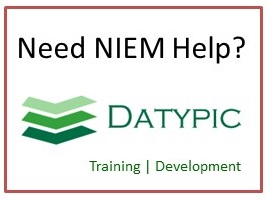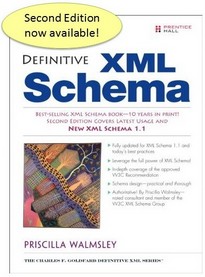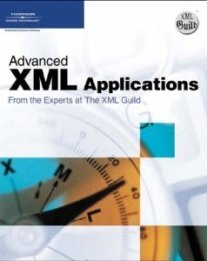gml:epochOfUse
Element information
Namespace: http://www.opengis.net/gml/3.2
Schema document: external/ogc/gml/3.2.1/temporalReferenceSystems.xsd
Type: gml:TimePeriodPropertyType
Properties: Local, Qualified
Content
- gml:TimePeriod [0..1]gml:TimePeriod acts as a one-dimensional geometric primitive that represents an identifiable extent in time. The location in of a gml:TimePeriod is described by the temporal positions of the instants at which it begins and ends. The length of the period is equal to the temporal distance between the two bounding temporal positions. Both beginning and end may be described in terms of their direct position using gml:TimePositionType which is an XML Schema simple content type, or by reference to an indentifiable time instant using gml:TimeInstantPropertyType. Alternatively a limit of a gml:TimePeriod may use the conventional GML property model to make a reference to a time instant described elsewhere, or a limit may be indicated as a direct position.
Attributes
| Name | Occ | Type | Description | Notes |
|---|---|---|---|---|
| xlink:type | [0..1] | xsd:string | Fixed value is "simple". from group xlink:simpleLink | |
| xlink:href | [0..1] | xsd:anyURI | from group xlink:simpleLink | |
| xlink:role | [0..1] | xsd:anyURI | from group xlink:simpleLink | |
| xlink:arcrole | [0..1] | xsd:anyURI | from group xlink:simpleLink | |
| xlink:title | [0..1] | xsd:string | from group xlink:simpleLink | |
| xlink:show | [0..1] | Anonymous | The 'show' attribute is used to communicate the desired presentation of the ending resource on traversal from the starting resource; it's value should be treated as follows: new - load ending resource in a new window, frame, pane, or other presentation context replace - load the resource in the same window, frame, pane, or other presentation context embed - load ending resource in place of the presentation of the starting resource other - behavior is unconstrained; examine other markup in the link for hints none - behavior is unconstrained | from group xlink:simpleLink |
| xlink:actuate | [0..1] | Anonymous | The 'actuate' attribute is used to communicate the desired timing of traversal from the starting resource to the ending resource; it's value should be treated as follows: onLoad - traverse to the ending resource immediately on loading the starting resource onRequest - traverse from the starting resource to the ending resource only on a post-loading event triggered for this purpose other - behavior is unconstrained; examine other markup in link for hints none - behavior is unconstrained | from group xlink:simpleLink |
| nilReason | [0..1] | gml:NilReasonType | from group gml:AssociationAttributeGroup | |
| gml:remoteSchema | [0..1] | xsd:anyURI | from group gml:AssociationAttributeGroup | |
| owns | [0..1] | xsd:boolean | Default value is "false". from group gml:OwnershipAttributeGroup |
Used in
- Type gml:TimeCalendarEraType (Element gml:TimeCalendarEra)
Sample instance
<gml:epochOfUse> <gml:TimePeriod gml:id="ID"> <gml:metaDataProperty> <gml:GenericMetaData>Any text, intermingled with: <!--any element--> </gml:GenericMetaData> </gml:metaDataProperty> <gml:description>string</gml:description> <gml:descriptionReference/> <gml:identifier codeSpace="http://www.example.com/">string</gml:identifier> <gml:name>string</gml:name> <gml:relatedTime> <gml:TimeInstant gml:id="ID">... </gml:TimeInstant> </gml:relatedTime> <gml:beginPosition>12:00:00</gml:beginPosition> <gml:endPosition>12:00:00</gml:endPosition> <gml:duration>P1Y2M3DT10H</gml:duration> </gml:TimePeriod> </gml:epochOfUse>



